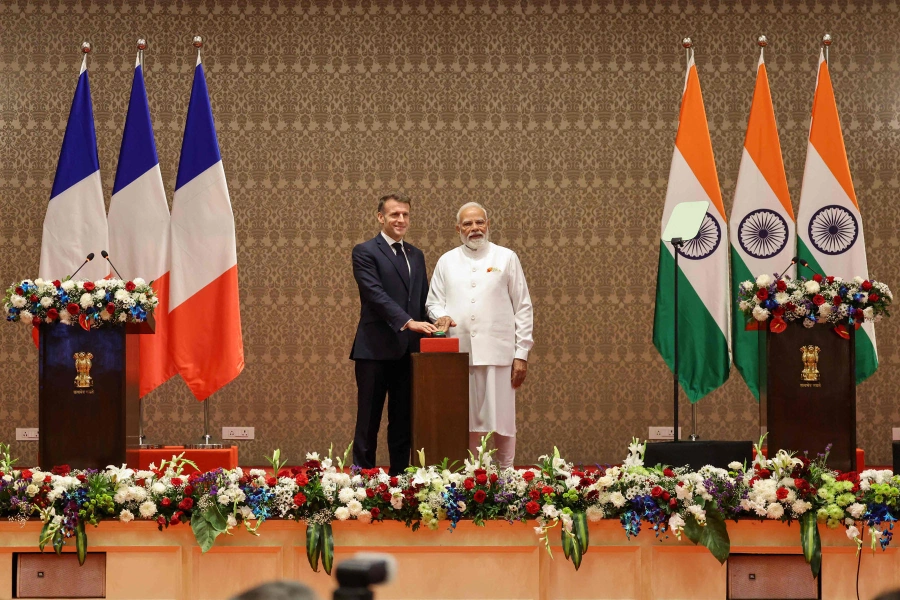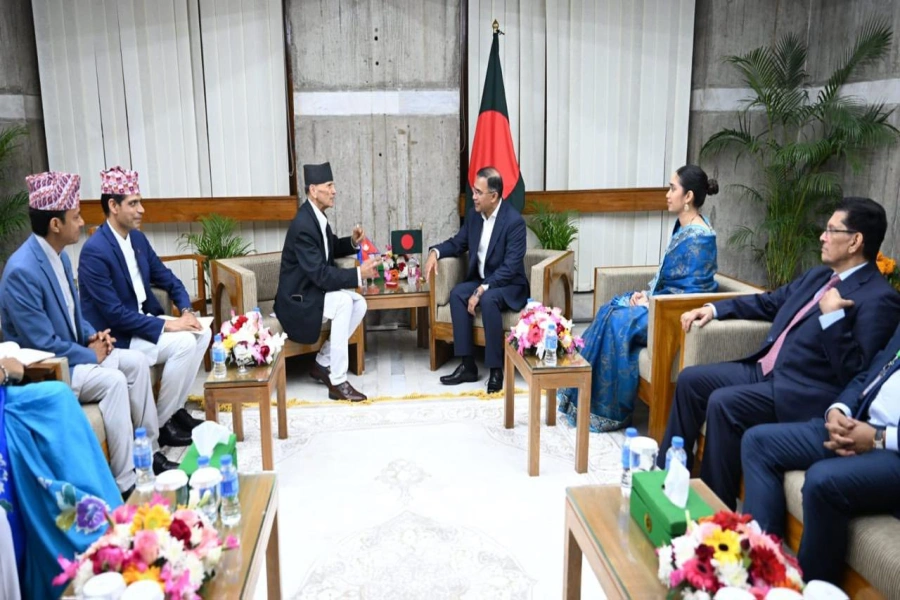KATHMANDU, Nov 6: The Supreme Court (SC) has dismissed a writ petition filed against the long-term electricity trade agreement and issued a directive order. A full bench of Chief Justice Prakashman Singh Raut, Justice Sapana Pradhan Malla, and Justice Mahesh Sharma Paudel dismissed the writ petition on Tuesday after eight months of registration.
The SC has not published the brief written instructional order and it is expected to take some time. Last February, the joint bench of Justices Kumar Chudal and Saranga Subedi ordered the writ to be sent to a full bench after failing to issue a decision.
Prior to this, on January 30, a single bench of Justice Nahakul Subedi had the withdrawal of two amicus curiae and directed the government to provide written reasons in response to the writ petition filed against the agreement. After hearing the opinion of the amicus curiae, the joint bench was unable to issue the decision and referred the writ petition to a full bench.
Surya Nath Upadhyay, a former Chief Commissioner of the Commission for the Investigation of Abuse of Authority (CIAA), had filed a writ petition on January 29, raising questions about the ‘long-term electricity trade agreement’ signed by the Nepal government with India. The writ petitioner, Upadhyay, claimed that the agreement was against the constitution, as well as the existing treaties and laws. A long-term electricity trade agreement between Nepal and India was signed on January 4, 2024, in Kathmandu.
Writ petition filed against Rabi Lamichhane

In the agreement, it is mentioned that India will take 10,000 megawatts of electricity from Nepal in 10 years. The writ petitioner Upadhyay claimed that the agreement was against the Vienna Convention and the Constitution. The petitioner had requested the court to scrap the agreement made without full authority under Section 3 of the Treaty Act, 2047.
In the writ petition, it was demanded, “While reviewing the informally obtained agreement, as it falls under Article 279 (2) of the Constitution of Nepal, a mandamus order should be issued to complete the process. The order of implementation of the agreement, without completing the process under Article 279(2) should be canceled.”
In the petition, it was demanded to implement the agreement only after extensive discussion in parliament, as it relates to the distribution and utilization of natural resources under Article 279, (2) of the Constitution. The petition demanded that the issue of the multi-faceted use of water resources and the distribution of down streams benefits in the future be included in the agreement.
The petitioner had claimed that the agreement made in the name of electricity trade, which allowed neighboring India to use water resources unilaterally, free and unfairly, was against the national interest. It demanded an mandamus not to implement the agreement without modifying it in such a way that Nepal would benefit from equitable sales and distribution of both electricity trade and water resources utilization, along with the electricity trade.
In the writ petition, as the 'legislature-parliament' used in the Nepal Treaty Act is not recognized by the Constitution of Nepal 2072, it was also demanded that the Treaty Act be immediately amended to align with the Constitution, “as the government showed shameful indifference in foreign affairs and failed to recognize the need to make the Treaty Act consistent with the Constitution.”
Under Section 7 of the Vienna Convention 1969 and Section 3 of the Nepal Treaty Act, 2047, it is mentioned that no one, except, the Prime minister and the Minister for Foreign Affairs, shall negotiate, accept the final draft or a certified copy, or sign or maintain reservations, or perform any other function related to a treaty to which Nepal or the Government of Nepal is a party, without full power.
The petitioner insisted on maintaining strong relations with neighbors and other friendly countries as a sovereign country based on international law and the United Nations Charter.







































